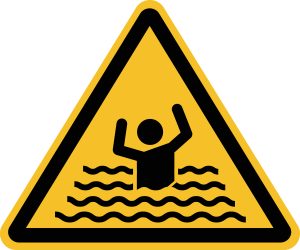
Unlike the sort of intense physical trauma inflicted in a car crash, the impact of drowning can be much more subtle, affecting survivors in ways that aren’t always easy to see from the outside looking in. These seemingly “invisible” symptoms can present stark difficulties, turning routine tasks into real challenges.
In New York, anyone who suffers serious injuries caused by another person’s negligence could be entitled to compensation.
You may be able to recover or restore lost income even if you were not the victim.
Parents, for instance, are typically entitled to file claims on behalf of their minor children—and may be able to obtain reimbursement for the time and money they spent ensuring their child’s well-being.
The Limitations of the Law
Filing a personal injury lawsuit and recovering lost income from work necessitates meeting certain legal standards. In most cases, recovery is only an option when you have evidence establishing that:
- Your accident was caused by an act of negligence; and
- Your accident caused you to sustain a physical injury, an economic loss, or some combination thereof.
So, even if you should be entitled to compensation for your lost income, the Empire State’s courts only have the authority to issue an award if you have evidence of both physical injury and financial loss.
The Need to Document Your Injuries
You can only obtain compensation for your lost income, lost wages, or lost self-employment income if you have evidence of your injuries. Relevant evidence could include, but is not limited to, the following:
- Medical records;
- Diagnostic reports;
- Hospital bills;
- Care plans and referrals; and
- Testimony from a physician.
Calculating Your Lost Income
Your lost income is the amount of money that you were unable to earn as a consequence of an injury. Assessing this amount is straightforward. It typically involves:
- Counting the number of days you missed work as a result of an accident;
- Collecting your paystubs, receipts, or invoices to assess your loss; and
- Using your proof of income to determine how much money you would have earned had you not been injured, or been forced to take time away from work to care for an injured child.
If your injuries are so serious that they could affect your future career opportunities and earning prospects, you may be entitled to additional damages. However, obtaining compensation for diminished earning potential requires performing a much more complex series of calculations. This typically requires obtaining testimony from a drowning economic expert.
Your Options If You’re Self-Employed
You still have a right to obtain damages for lost income if you’re self-employed, an entrepreneur, or an independent contractor. Your status could make loss assessments a bit more difficult, but you can substantiate your claims using evidence like:
- Your 1099s;
- Payments received from your S-corporation or LLC; or
- Contracts you’ve had to void or cancel due to the accident.
Don’t Risk Your Rights: Get Help When You Need It
If you, or a loved one, have been seriously injured in a drowning accident that was not your fault, your recovery should include resources beyond replacement income.
The Dietrich Law Firm P.C. could help you obtain additional damages, including compensation for:
- Outstanding medical bills;
- Anticipated care needs;
- Medical transportation costs;
- Paid co-pays and deductibles;
- Exhausted vacation days or sick leave;
- Physical pain and suffering;
- Emotional pain and suffering; and
- Loss of enjoyment.
Please contact us today to schedule your free, no-obligation consultation.
